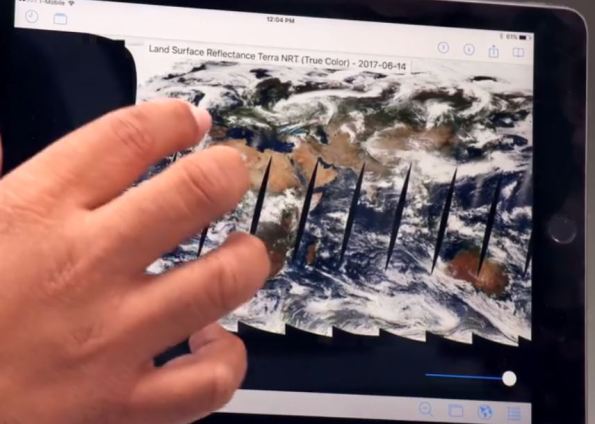Archive
Geospatial Commission: Best practice guide for data publishers
The UK’s Geospatial Commission and its six partner bodies, British Geological Survey, Coal Authority, HM Land Registry, Ordnance Survey, UK Hydrographic Office and Valuation Office Agency, have published a new guide with practical advice on how to optimise access to geospatial datasets across all search engines. The main recommendations highlighted in the guide are:
- Complete all the metadata fields on your data portal.
- Restrict page titles and URLs to 50-60 characters; longer titles tend to be truncated and longer URLs tend to be give a lower ranking.
- Optimise your data abstracts; write clearly, write concisely.
- Use keywords appropriately in abstract and avoid keyword lists.
- Avoid the use of special characters that may not display correctly on a webpage.
- Page longevity improves search engine ranking; try to keep your URL the same even if your data changes..
- Remove out of date or pages that are no longer maintained; these are less likely to be shown in search results that more recently updated pages.
- Avoid metadata duplication; the same information available from multiple publishers or available in more than one place makes it likely the search results will have a lower ranking than one good metadata record.
- Consider using user surveys, interviews and some of the analytic tools available, such as Google Analytics and Search Console applications, to understand what geospatial information the target audiences are looking for and finding. If necessary adjust data portal abstracts and keywords to better reflect those search parameters.
- Apply all abstract and keyword changes to all pages on your portal to ensure a consistent search ranking.
It would interesting to know if the Geospatial Commission and partners will follow up with any agencies and organisations that implement these recommendations to see how much of an improvement is possible with respect to finding and accessing online geospatial datasets.
Make scientific data FAIR – article review
In a new article in Nature, author Shelley Stall and her colleagues argue that all disciplines should follow the geosciences and demand best practice for publishing and sharing data. These authors make bold statements that I believe are long overdue, and the statements touch on many of the themes of this blog and our book, including those below. I created a video with my thoughts about this, here.
(1) Although the amount of scientific data generated are enormous, and growing each year, these data are “not being used widely enough to realize their potential” and that “most researchers come up against obstacles when they try to get their hands on data sets.” The authors show evidence that that only 1/5 of published papers typically post the supporting data in scientific repositories. While I do not have the figures at hand, this seems to be even more of an acute need in the area of research that makes use of GIS and remote sensing–how often are the links to the data sets provided? Very seldom. The authors give several key reasons why authors do not share data.
(2) The authors state that “Too much valuable, hard-won information is gathering dust on computers, disks and tapes.” I spent much of my career in federal data gathering agencies, and while much data has been digitized, not all of it has, and then — what happens when technology changes, including media (such as specific types of physical storage–see our post “Tossing the Floppies” for example) and means of access (such as the demise of most FTP sites where data was stored). On a related theme, we have documented the demise of useful geospatial data portals in these essays that may sound good in that the new and improved portals perform better, but often, data are not ported over, or are done so in a way where researchers cannot find them. Two of the many examples include the National Atlas of the USA and the Global Land Cover Facility. I have spent many hours this year alone trying to obtain data that were on both of these sites.
On a positive note, the central theme of the article is to encourage disciplines to follow the leadership of Earth Sciences and adopt the “Enabling FAIR Data Project’s Commitment Statement in the Earth, Space, and Environmental Sciences for depositing and sharing data” principles. This helps ensure that data be “findable, accessible, interoperable and reusable”. Perhaps we will see the day when the majority of articles will provide, for the reader, access to the data behind them. I do hope, however, that if authors cannot share the data for reasons of confidentiality or safety or for another valid reason, that provisions will be made for the research to still be published if it is deemed by peer review to be of value to the scientific community.

A new article in Nature discusses why data is seldom shared in published scholarly research, and what might be done about the situation.






Recent Comments